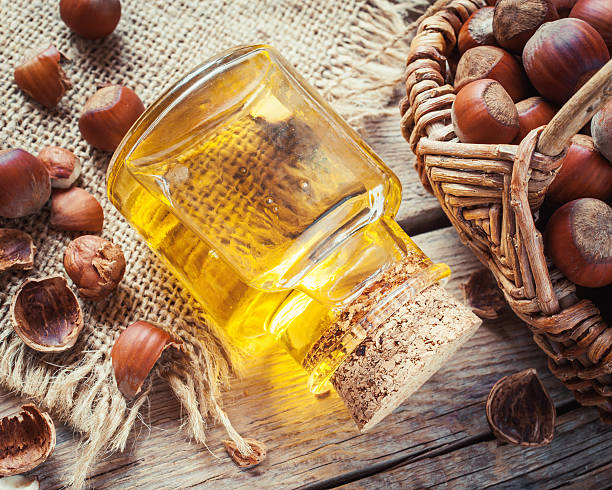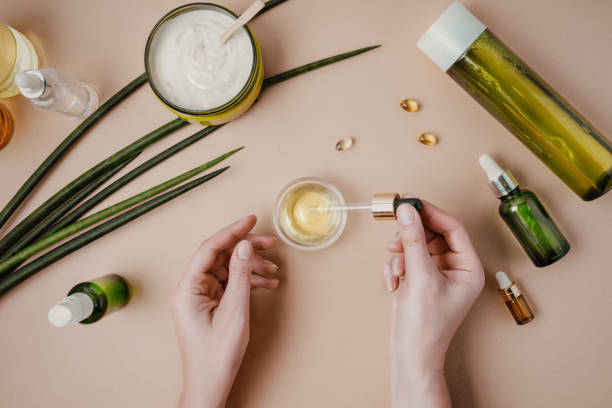There are dozens hair oil, and even hundreds of vegetable and essential oils of different brands.
With natural skincare products becoming fashionable, manufacturers have seen in this “organic” trend a fabulous way to make a profit by letting consumers convince themselves that they are green and that they should buy.
Even essential oils have been democratized; almost everyone has them at home.
Everyone therefore goes there for its pretty collection of oils with very specific properties and for some, “miraculous”. If we are to believe the big brands of home cosmetics, you must have plenty of them, you must buy them all, etc.

What is it really? Do we need to spend thousands and cents on vegetable oils and essential oils? Could we not be satisfied with single oil that suits us?
Vegetable oils for hair care
Let’s start with vegetable oils. You should know that, in principle, a vegetable oil nourishes the hair. All the oils will have this same action of nourishing the hair, some “a little more” than others. Because oils are above all fatty substances.
Some are the exception: coconut oil for example, castor oil, and hazelnut oil are extremely different.
They do not contain the same fatty acids, do not have the same active ingredient content, do not have the same nourishing power… We are going to compare them!
The best hair oil according to use: example!
Coconut oil for her hair

Coconut oil is arguably the best hair oil, as it is very rich in lauric acid, it is the one that best penetrates the hair fiber, and therefore is the most likely to best protect dry hair. And damaged, or even all types of hair. In this, for example, it is not comparable to any other oil.
Castor hair oil

Castor oil also has its own properties. Indeed, it is very rich in triglycerides, and therefore is also perfect for caring for the hair, since these triglycerides are the fatty acids essentially present in the sebum of our hair.
It is therefore also excellent, but will not have the same effects as coconut, because it does not penetrate the hair fiber. On the other hand, in protective oil, it will be perfect. It is also said to stimulate hair growth.
Hazelnut oil for hair

Hazelnut oil, on the other hand, is sebum-regulating: it has nothing to do with the two previous oils, since it is particularly suitable for oily scalps and oily skin.
It is dry oil, less greasy but just as rich in interesting active ingredients. Its does not have the same use as the previous oils at all. It is less nourishing for the hair; it is a more targeted treatment.
Which vegetable hair oil for which use?

- For hair growth : borage, sapote, castor oil, avocado
- To intensely nourish : coconut, olive, jojoba, argan, grapeseed
- For oily hair : hazelnut, walnut, macadamia nut, sweet almond, jojoba
- For hair beauty: camellia, nigella, coconut, sesame, flax, broccoli, exotic oils…
Some oils also have a particularity. Macadamia nut oil helps to give curls some bounce and conversely, broccoli oil has slightly smoothing effects on the hair.
Depending on the type of hair, hair care is essential; Frizzy, frizzy or curly hair can be particularly dry and brittle. An oily hair mask can be restorative and prevent frizz.
How to apply hair oils?
You need to dampen your hair to apply the oil.
Once the hair is wet, you can gently massage the scalp, and spread the oil on the lengths and ends.
I recommend a fairly long exposure time (up to several hours) so that your mane can benefit from all the moisturizing properties.
Finally, you wash your hair and rinse with lukewarm or cold water. To close the scales , do not hesitate to add vinegar to your rinsing water.
Note that some oils can also be applied as a spray after the shower, and therefore do not need to be rinsed off after application.
